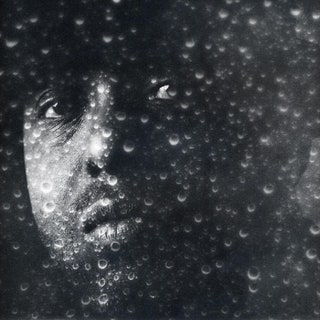The London jazz musician’s sprawling suite explores the vital function of breath in times of distress. The music can be tranquil, but it also formally mimics the act of calming down.
When you are engulfed in panic, you’re supposed to breathe. In through your nose, out through your mouth. Slowly, and with purpose. Rhythmically filling and emptying your lungs is said to relieve inner turmoil. But what if the very act of focused respiration, the effort of making an involuntary task intentional, inflames that panic? What if air is simply not available? In Breathe Suite, London composer and multi-instrumentalist Ben Marc (né Neil Charles) examines this paradox. His swirling arrangements—which synthesize jazz, hip-hop, neoclassical, and electronic—explore multiple aspects of breath: its inherent meter, vital function, and what happens when it’s stifled.
Breathe Suite consists of four interconnected pieces that recycle instrumental and verbal motifs: two suites with guest vocalists, and two improvisational pieces. Not intending to create a full EP, Marc wrote opener “Breathe Suite A” during the initial months of lockdown and enlisted singer MidnightRoba to contribute lyrics and vocals. “Once Midnight heard it, she asked for a longer version. I was adamant that this was the arrangement,” Marc said in a recent interview. “Whilst the conversation was being had, George Floyd was murdered.” Shaken, Marc extended the piece, adding dramatic string layers and opalescent harp. From that point, the EP took on a life of its own. Marc recruited artists from London’s jazz community and set out to make a record that could soothe in times of trauma. Breathe Suite can be tranquil, but it also formally mimics the act of calming down, the deep inhalations and the things we tell ourselves to curb distress.
Breathe Suite’s main recurring motif is a recording of a children’s choir. Their refrain reappears throughout: “I’ll raise my voice/You raise your hand/I’ll hold the truth/Until you understand.” Their voices are loose and uninhibited. They sound like normal kids rather than trained choristers, an intentional and effective choice by Marc, who wanted their presence to represent youth and innocence. A second motif is the simple but insistent repetition of “breathe.” Its urgent rhythm mimics quickened breath, like forceful exhales into a paper bag.
These patterns adopt different tones depending on Marc’s arrangements; on “Breathe Suite A,” they are meditative and melodic. On “Breathe Improv A” and “Breathe Improv B,” they become fraught. “Breathe Improv A” is scored solely by Marc’s bowed double bass, and its ominous, sickly timbre makes the command to “breathe, breathe, breathe” sound like hyperventilation. On “Breathe Improv B,” Marc buries the choir beneath metallic pangs of synthesizer, trapping their voices between its sharp edges. The allusion to breath in this context cannot be separated from the deaths of George Floyd and Eric Garner, men whose air was literally taken from them.
If anything protrudes from Marc’s sprawling compositions, it is a pair of verses from London musician and singer Rarelyalways on “Breathe Suite B.” Structurally the song resembles its companion piece, “Breathe Suite A,” but instead of being lifted by MidnightRoba’s satin register, it feels weighed down. Rarelyalways has a blunt, round voice that works well on his own music, but punches through Marc’s sweeping arrangements with dull jabs. Phrases like “Goodfellas” and “Dave Chappelle” rupture the glittering plane of viola, cello, and harp, and their context isn’t clear from a close reading of the lyrics. Marc’s piece feels grand and cosmic, while Rarelyalways riffs on the mundane. It’s not a bad performance, but it seems bulky and thrown-on.
Despite the distraction, “Breathe Suite B” includes a stellar performance from woodwind maestro Shabaka Hutchings, of trailblazing jazz groups Sons of Kemet and the Comet Is Coming. Hutchings is an acrobatic player, and his insistent, nudging clarinet bends and flutters before launching into a feverish solo during the choir refrain. Hutchings’ skronking bristles against Marc’s loping cello, suggesting a deep-sown tension. It is a performance of crisis—the rage that bubbles in each breath and can’t be pacified.



0 comments:
Post a Comment